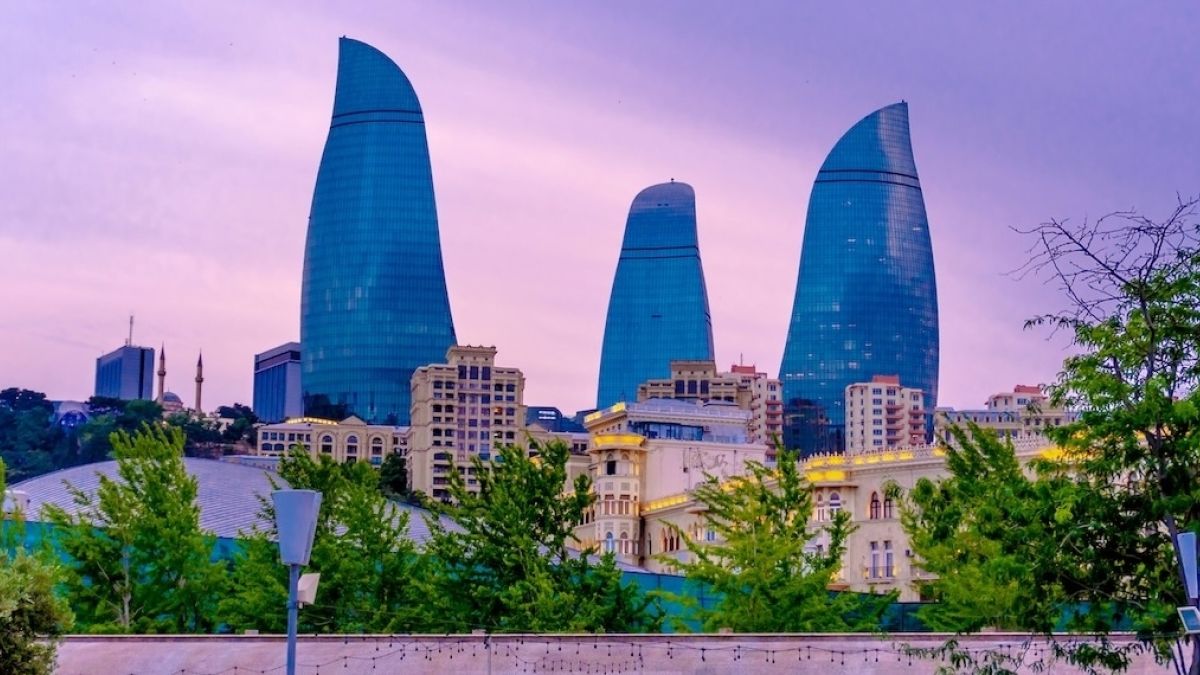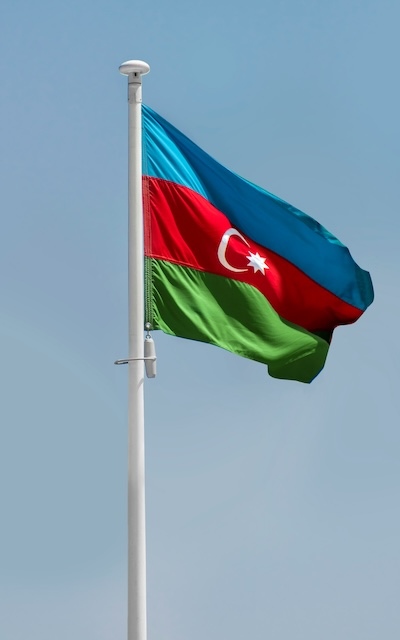
A few years ago, at a conference, I had a large banner at my booth that read: “Azerbaijanis: God’s gateway people to the Muslim world.” One of the delegates looked unsure as they pondered a few minutes before plucking up the courage to ask me whether this was a real place.
Azerbaijanis, Azeris or as some name them, Azerbaijani Turks, get that a lot.
They are a people group that span numerous countries and encompass a variety of linguistic and cultural contexts. The Republic of Azerbaijan is home to over 9 million Azerbaijanis, but its low profile has caused many to underestimate its significance. While the exact number of Azerbaijanis worldwide is unknown, estimates range wildly from 30 million to 50 million. The largest concentration of Azeris is found in Iran, where there are anywhere from 18 million to 30 million, depending on who you consult.
From the mountains of Ararat and the Western Azeri exclave of Naxchevan (from the old Azeri, Nuh chixan, or “where Noah came out,” based on Genesis 8:4), to the highest echelons of power in Iran (where the supreme leader, Ayatollah Khameini, and the President Pezeshkian, are both Azeris), the Azerbaijani Turks are a people who deserve to be noticed.
Dispersed Among the Nations
Up to the 19th century, what is now Azerbaijan was part of the Persian Empire. Following war and successive treaties, the Persian Empire ceded to Russia what is now known as Azerbaijan making it Russian territory from that time forward.
Following the first world war, as the Russian Empire dissolved, it lost its grip on Azerbaijan, and Azerbaijan, declared its independence. For a few short years, it was a beacon of democracy in the region, until the Bolshevik army marched into Baku to take back what the Russian Empire had lost. Many Azerbaijani Turks fled and resettled in the eastern provinces of Turkey. Presently there are estimated to be between 500,000 and 600,000 Azerbaijani Turks in Turkey. In the country of Georgia, the Azeri population is estimated to be from 240,000 to 400,000. In Russia and the former Soviet Union, approximately one million Azerbaijanis form a significant minority, though their numbers are fluid and based on workers spending time in the country for work. In northern Iraq, a people called the Turcoman, who speak Azerbaijani, are estimated to be around 2.5 million. Though the recent upheaval of war, migration, and unrest among these nations, makes it hard to speak accurately of population numbers. Those dispersed Azerbaijani Turks speak Azerbaijani, Farsi, Turkish, Russian, and Arabic. These are closely related to many other local Turkic languages which they speak as second or third languages. The populations often maintain strong links to older communities in other countries where they have relatives or significant trade partnerships.
Although national boundaries present challenges to Western workers, they aren’t as problematic to Azerbaijani believers. Nationals from Azerbaijan already go freely to Iran to share the good news of Jesus and have seen several different church planting movements develop in difficult circumstances. Covid created a pretext for governments to make the border less accessible to normal traffic, but through creative means, Azerbaijani leaders and evangelists still find ways to cross borders to build the church, using their native language in another country. Pastors from Baku have gone to northern Iraq, Georgia, Iran, and the Northern Caucasus and are welcomed as brothers rather than foreigners.
In recent years, we have seen national workers from Baku share their faith and plant churches in Georgia, free from any government hindrance. Teams of local believers from Baku have found that they can travel to the North Caucasus, one of the least engaged and most resistant parts of the world to the gospel and share their faith with similar linguistic groups. They are often welcomed like cousins who share a cultural heritage rather than being rejected as foreign infiltrators.
With the Bible in two versions, plus a study Bible and much new media, believers have found ways to connect rapidly with the people who respond to ads and social media, requesting visits or Biblical material. Workers from Azerbaijan are trained to follow up on initial media outreach and meet face to face with people to help them be discipled and form churches. This has been a collaborative work of local churches with local and external agencies, and it is seeing great fruit.
The challenge is to help local believers work more collaboratively, so we can see the church grow and mature in the nation of Azerbaijan and beyond. God willing, these new resources will help Azerbaijani believers mature in their faith and empower them to continue to share with the nations. We are seeing teams of national workers now envisioned to reach their own people and the unreached peoples around them in their own and neighboring nations. Talysh, Lezgi, Tat, Tsakhur and so many other peoples are hearing the gospel in their national language and responding. Azerbaijanis are opening the gateway to many peoples.

Least-Reached People Reaching Other Peoples
It’s good to remember the Azerbaijanis are still a least-reached people group themselves and thirty years ago, there were hardly any Azeri believers. Estimates now of Azerbaijani believers worldwide, range from 7,000 to 17,000 and this is probably low, because a growing number continue to come to faith in Christ, and numbers from countries like Iran are hard to calculate. What is especially exciting is that they understand the important role they have in reaching their own and other peoples.
Brother S grew up into a life of violence and crime in Russia. When he found he had terminal cancer he decided to go to a shrine in Iran to see if he could be healed. He brought some forged dollars with him to sell while he was travelling. It was crowded at the shrine, and there was a long line to get into the prayer room, so he had to queue. As he was standing in line, a man came out of the shrine with long hair wearing a large cross on his chest and walked up to him. He asked him what he was doing there and said to follow him. Brother S was confused and wondered how this man could even be there looking like that and wearing a cross. After some time, he managed to get into the shrine and was about to pray when he felt the man touch his shoulder and ask him again, what he was doing there and said again that he should follow him. This time he felt something different, and he knew this was Jesus. He got up to follow him but could not see him. He went back to his room and realized he was not coughing blood anymore and that he felt healthy for the first time in a long time. He flushed the forged money down the toilet. He returned to his home and began to share with everyone. His mother told the Imams, and they questioned him for days about what he had seen and now believed. They could not deny that he was healed, and he would not change his story. God has since used Brother S to lead many to the Lord in his religious part of Azerbaijan, and he is now in the process of building a house of prayer for his village to be a center to spread the faith. He comes from an unreached people group himself in Azerbaijan, and God is using him powerfully.
The Alov(Flame) Network has been modelling a new way of church planting to the one that was inherited by many churches in Azerbaijan from the old Russian or even Western large church model. Many of the older established churches were formed on the model of a main pastor and a church built to be as large as possible, possibly with small groups, but often not. Alov however, formed with a small rapid development and multiplication model that gathered around a vision rather than a strict tight set of doctrinal rules. The basics are essential, but the peripheral issues are not. Smaller house-based churches that have leaders, often a man and wife, can be more easily moved if needed, have smaller overheads, and are more kinship friendly and natural for Azerbaijan. By this model they have seen their fellowships grow to number over sixty in recent. They model a plurality of leadership rather than single senior pastor, and they have developed a system in which younger leaders are welcomed as part of the decision-making process.
A sister in one of the regions of Azerbaijan came from a very radical Islamic family, with relatives who had volunteered to Isis. She was a Muslim but not as radical as they were. She met one of the Azeri outreach teams that was visiting her city, and they began to talk and share their faith with her. She began to read the Bible with them, but she was confused about what was true and who she should follow. She knew that it was a very serious thing for her to leave Islam. That night she had a dream where Jesus came to her and told her to follow him because he was the truth. She asked him why none of her Muslim prophets had come to talk to her. Jesus said, “They’re all dead but I’m alive. Follow me.” So, she decided to follow secretly until she felt ready to tell her family.
God is at work among the Azerbaijani people and from them to many others
New Challenges
Events of the last few years have brought new challenges and diminished the free flow of people and ideas in the region: Covid, renewed persecution in Iran, sanctions and threats by the US, local fears and insecurities prompted by the unrest in the region from Syria, unfavorable news reports about the unjust policies of Azerbaijani leaders, and the aftermath and uncertainty following the war between Azerbaijan and Armenia over the disputed territory of Nagorno-Karabakh. An increased focus on nationalism and new legislation and business policies that have prompted some expatriate workers to leave, remind us that this is an area of the world that is never the same for too long. Recent events in the region concerning Iran and Israel, the Ukraine-Russia war, and the new peace accord between Azerbaijan and Armenia continue to cause us all to seek God for His guidance and clarity in uncertain times.
One thing however is certain. Local Azerbaijani believers are better suited to thrive in such instability than most and can respond rapidly to the changes. Despite the challenges, we continue to see growth and maturation in Azerbaijan’s church as they continue to show they are one of God’s gateway peoples to the Muslim world.
How You Can Pray
Would you join in prayer for your Azerbaijani brothers and sisters?
• Pray that God would embolden and empower Azerbaijani believers to reach others for Christ.
• Pray for growing unity among the few Azerbaijani churches in Azerbaijan, and for local believers and leaders to be strong in faith and patient in trials.
• Pray that believing workers who bring needed skills and professions to Azerbaijan would benefit the country and be given gospel opportunities.
• Pray for missionaries and church planters to the Georgian Azeri minority, and for ministries mighty in prayer for spiritually dark places
• Pray for unity and agreement among Azerbaijani churches and leaders and for the increased vision for kingdom collaboration in and from the nation of Azerbaijan.
Author
Chris Jones
Chris Jones is the Executive Director of the Network of Azerbaijani Partnerships, and the Global Outreach Director of New Hope Church, MN. Chris has worked in church planting, leadership training, and people group partnership facilitation in the Turkic world since 1989.
Subscribe to Mission Frontiers
Please consider supporting Mission Frontiers by donating.
Subscribe to our Digital Newsletter and be notified when each new issue is published!